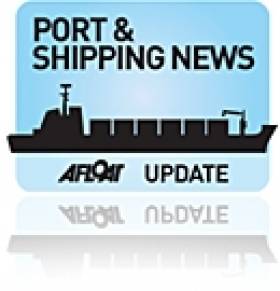Displaying items by tag: Marine & Maritime Economies
#MarineJobsRise - 10,000 new jobs could be generated in the marine and maritime sectors of the economy by 2020 according to the Expert Group on Future Skills Needs.
In a EGFSN report "A Study of the Current and Future Skills Requirements of the Marine/Maritime Economy to 2020" it states that there are approximately 16,155 persons employed in the marine economy in marine and coastal regions around the country.
Such roles are spread across the key sectors and straddle the full range of occupations from managerial and professional to operatives, including engineers, marine biologists, maritime lawyers, environmental scientists, naval architects, technicians, and crane operators, fish filleters.
The report estimates that Ireland has the potential to create up to 16,900 job vacancies in the period to 2020 arising through expansion and replacement demand with around 10,000 of these being new jobs owing to growth of the marine economy.
While no major skills shortage was identified the skills in demand include engineers, people with boat handling skills and hydrographic surveyors. Many roles are not exclusive to a marine environment for example electrical and mechanical engineers, lawyers, technicians and welders which are all land based occupations but with a top up qualification or training an individual's skills can be "marinised" to enable them work in a marine or offshore environment.
The seafood sector in particular has an ageing workforce for which measures will need to be put in place to attract and upskill younger workers.
Operatives and low skill roles are a major component of the marine economy but there is evidence of a shift towards more professionals being employed right across the economy including sectors such as seafood which is predominantly a low skill employer and the emerging sectors, such as marine renewable energy and maritime monitoring where professionals such as engineers is the major skill in demand.
A key finding in the study is the lack of awareness about possible careers in the Marine Economy and the time delay in obtaining current economic data for the marine economy. Welcoming the launch of the report, the Minister for Skills, Research and Innovation Damien English T.D said: "I welcome the report which was a key deliverable under the Action Plan for Jobs.
It highlights the positive outlook for the future of the sector and shows that there is significant employment growth expected. The study also highlights the scope for regional job creation and opportunities for young people to obtain local employment in growing sectors; such as aquaculture, supply and services to the offshore energy sector and technology in the marine environment."
Chairperson of the EGFSN, Una Halligan said "With our position on the western periphery of Europe facing the Atlantic Ocean and its energy resources, our deep water ports and our 7,500 km coastline Ireland is well placed to capitalise on the growing potential of the global marine economy and create sustainable jobs in the coastal regions. However, an important aspect will be the co-ordinated effort on the part of all the marine sectors to raise awareness of the excellent and rewarding careers in the sector and attracting people to the opportunities available."
The full report and its recommendations are available to download by clicking HERE.
























































